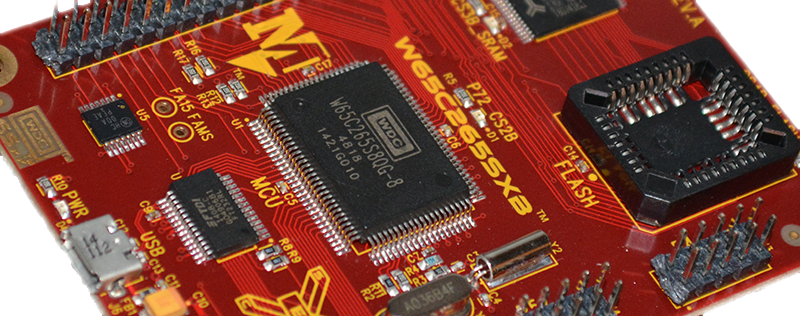The first prototype versions of Pyra, a handheld gaming system based on open source technologies, have shipped.
Pyra Device Prototypes Reach Testers : Read more
Pyra Device Prototypes Reach Testers : Read more
I think a lot of people who actually want that are just using emulators. Which is kinda ironic, if you think about it.If this were designed to make a dedicated platform for homebrew developers to have a dedicated platform to make games in low-level languages/bare-metal/ assembly: awesome.
...
That's a cool concept. That makes sense. Things like that should exist on modern hardware, I think there is some demand for it as old platforms like C64 are getting new development because of that type of simplicity.
I think a lot of people who actually want that are just using emulators. Which is kinda ironic, if you think about it.
Anyway, Vulkan is about providing low-level access to the hardware. But it's not simple, because neither is the hardware. If you wanted simplicity, you'd be better off using OpenGL.
The thing is that we're past that. Modern hardware is not really usable in that way.I guess I mean simplicity in the sense that there is no abstraction of the hardware, therefore you have direct register and memory access. Being able to just make the computer exactly what you want (good or bad) and having the ability to literally never need to pass a pointer into a function. Everything is explicit. I mean, obviously Assembly (or more reasonably a mix of assembly and C) is not a simple language to read/write, even with good comments and fixed hardware. But I'm saying that's sort of the point. It would give an open handheld console a point.
Exactly. That's why this thing makes no sense. If the Pi didn't exist, it'd be a different story... but it does.People who just want to use open tools to make or play a game don't need this 500 Euro handheld, they probably already own several other more powerful devices - or they can just get a raspberry pi and put it into a portable case.
Yeah, so use a SNES emulator.The fun is instead giving yourself a limitation and then proving you can overcome it - then making friends who want to do the same and sharing the process with them. It would be about making a game not playing it.
Sadly, today's kids will have to do this in emulators, or using vintage hardware.Maybe thats what I want: "Like Arduino but for games". And by want, I mean want to exist. I once programmed breakout in assembly using a monochromatic LCD, potentiometers, a beeper, and an 8052. It was an awesome experience that I never want to repeat. But I think it would be cool if people could experience the highs of that process in an easier to digest, toutorialized, and more social format.
I don't know about that. Most people don't have access to firearms or have to be in places where they can't have them (e.g. kids in school). And most self-defense situations don't call for lethal violence, anyway.It's like, I don't know, martial arts. Most people don't practice martial arts because it is the most effective combat or self-defense strategy in almost any situation in the modern world.
Usually electrical engineers, who start their education by understanding how the hardware is designed and implemented. From there, it's fairly straight-forward to see how to program it.eventually in the future everybody who learned computers in the pre-DOS era will retire. Then who will be left to program our hardware libraries?
Yes, and as an electrical engineer, that is where I get my philosophy and my "kids these days don't know how their computers work" attitude.Usually electrical engineers, who start their education by understanding how the hardware is designed and implemented. From there, it's fairly straight-forward to see how to program it.
Even today, there are still people making things that run on C64 (even competing and showing off to each other):
http://www.pouet.net/prodlist.php?platform[]=Commodore+64&page=1

I get your drift. However, when I start down the conceptual path of building vintage-style hardware with modern chip technology, I just can't quite convince myself it'd be much better than running an emulator on modern HW.Software emulation of old hardware is somewhat the polar opposite of what I mean. Instead of trying to build an old computer with new parts, I want to see a new computer built with modern open hardware and software that can be enjoyed for the same reasons that retro computing is appealing...
Well, FPGAs can save you all the trouble of fabbing ASICS. You could put down a soft core for the CPU and even a small GPU. The main issues would be licensing IP for the memory controller & display controller, as I recently read about a RISC-V CPU where they open-sourced the core design, but had to license some IP for the memory controller.I don't know if there are off the shelf parts available where such a thing is possible without designing custom hardware - and even if you open source your design or maybe there is an open design out there... you would be right back at many of the same problems that some of these other groups are facing by limiting themselves to the 8-bit era. Especially with the GPU.
I get your drift. However, when I start down the conceptual path of building vintage-style hardware with modern chip technology, I just can't quite convince myself it'd be much better than running an emulator on modern HW.
What don't you like about emulators? You just like the touchy-feely aspects of vintage HW?

